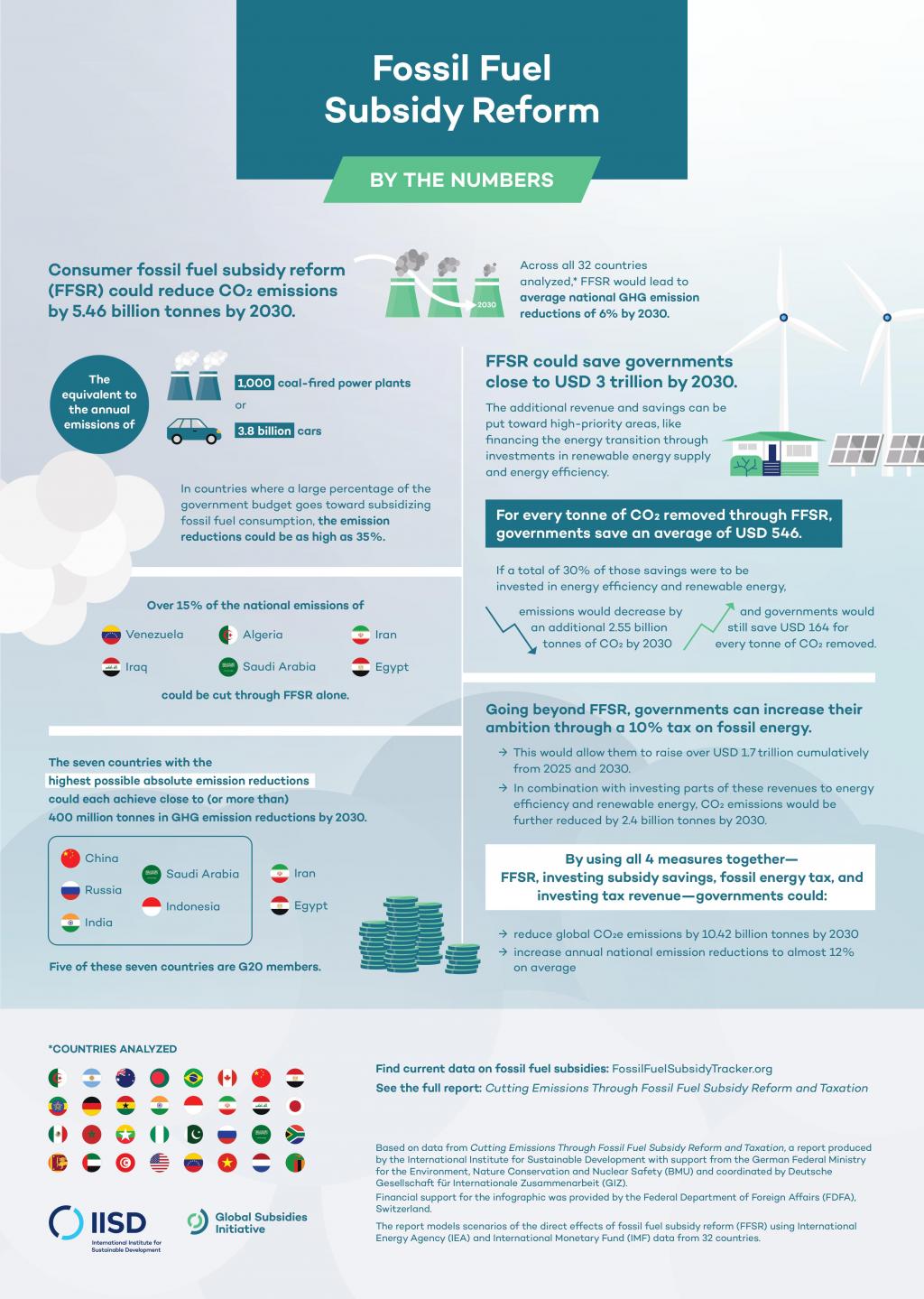Fossil Fuel Subsidy Reform by the Numbers
Fossil fuel subsidies reduce the price of fossil fuels and distort energy markets, further fuelling the climate crisis. Reforming these harmful subsidies can not only reduce emissions, but also save governments money and free up funds to support clean energy transitions. In this infographic, we visualize the potential of this critical emission reductions tool—by the numbers.
This infographic is based on the report Cutting Emissions Through Fossil Fuel Subsidy Reform and Taxation.

Additional downloads
You might also be interested in
Governments are subsidizing the destruction of nature even as they promise to protect it
When dignitaries from 196 countries converge in Montreal next week to rub shoulders and hash out a new global agreement to save nature, money will be on the agenda.
COP27 diary (November 16): '$100 billion in climate finance more of gesture from rich countries'
The 27th Conference of Parties (COP27) to the United Nations Framework Convention on Climate Change in Sharm El-Sheikh, Egypt, began November 7, 2022. Here’s a look at what happened on day 10 of COP27 climate talks. The draft text for a cover decision is yet to be produced by the COP27 Presidency as of 7.30 am November 17, leading many to wonder how long discussions will continue to arrive at a consensus on the document once released. Just two days of the summit remain.
Increased Support Needed to Achieve India's Clean Energy Goals
India is on track to achieve many of its 2030 clean energy goals but needs to step up government support measures to accelerate the deployment of offshore wind, electric vehicles, and green hydrogen, according to a new report.
Ending Export Credits for Oil and Gas: How OECD countries can end 2024 with a climate win
For a year now, Organisation of Petroleum Exporting Countries (OECD) governments have been negotiating an agreement that could put an end to oil and gas export finance. Following the acrimony in Baku, this would be a very real way for the OECD to show policy coherence, respond to calls from the poorest countries to stop subsidizing fossil fuels, and shift public finance to solutions.